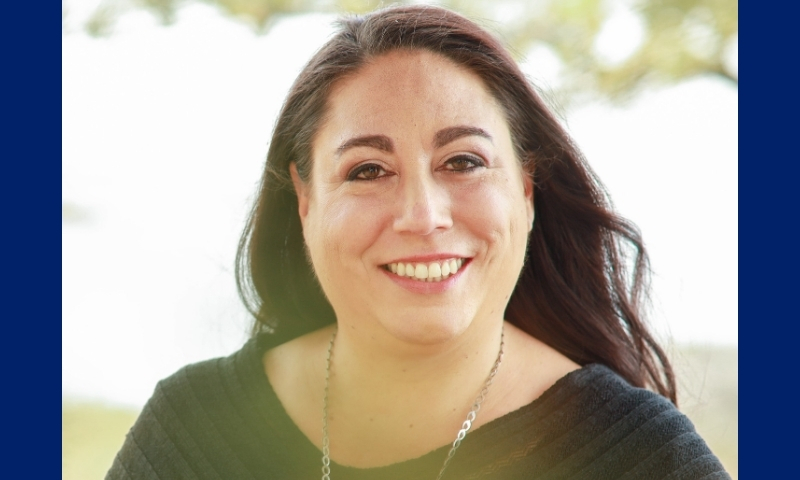Public Health Advocate Transitions to Nursing
Marissa Magnetti enrolled in the School of Nursing’s prelicensure program after a career in public affairs and communications, fueled by personal and familial health crises that drove home the impact of nursing.

A first-year student in the ABSN prelicensure program, Marissa Magnetti brings a wealth of experience—both personal and professional—to her studies at the School of Nursing.
Straight out of college, Magnetti began her career as a Research and Development Project Manager for the Allergy & Asthma Network, a nonprofit organization advocating on behalf of patients as well as caregivers and providers, who are crucial to patients’ health. Magnetti focused on ensuring that school children had the right to carry their asthma and anaphylaxis medications.
“Schools had adopted zero-tolerance policies for medications, and they were locked up in the nurse’s office. Unfortunately, schools were not staffed with full-time nurses, and children with life-threatening conditions were not always able to access their medication in an emergency. This had tragic, unintended consequences and several deaths across the United States,” said Magnetti.
Inspired by her organization’s involvement in federal and state policy initiatives to better serve these children, Magnetti decided to pursue a master’s degree in public administration with a focus on health policy. Her continued work at the organization, often in collaboration with communications or public relations agencies, impressed upon her the power that communications could have in public affairs and advocacy work.
“I then embarked on what became the bulk of my career, which was communications and public affairs, working on the agency side for more than 15 years,” said Magnetti. “I worked to ensure people had the necessary information to improve their health and overall outcomes, and I did a lot of work in underserved communities raising awareness about available resources to address their healthcare needs.”
Magnetti’s passion for serving people would eventually lead her to the nursing profession, spurred most acutely by her personal experience as a family caregiver.
“Both of my grandparents lived nearby and had escalating health issues. And my mother was significantly ill from the time I was 20 years old,” said Magnetti. “She eventually required serious surgery at Duke, and that’s one of the reasons that I have a passion for Duke in particular.”
Magnetti was exposed to various types of nursing and hospital settings, taking time away from work to help care for her mother, who required life-sustaining equipment.
Magnetti’s mother passed away in 2018. Shortly thereafter, Magnetti had her own, personal health scare.
“I had emergency gallbladder surgery and ended up with acute respiratory distress syndrome (ARDS),” said Magnetti. “It just so happened that the nurse caring for me in the ICU had also survived ARDS, which has a pretty high mortality rate.”
“It was a life-changing experience—just the combination of still wanting to help people, but in a more hands-on way than I was doing in my career previously. And with those personal experiences and seeing the need in nursing, I eventually decided to make my transition to nursing.”
Already familiar with the Duke health system, Magnetti said she was further drawn to the School of Nursing by its Health Innovation Lab, its center for Interprofessional Education and Care (IPEC) that allows for collaborative learning, and the School’s overall commitment to health equity.
She also said that she and her classmates have built a sense of community and support for each other, and that it’s clear that the faculty, and the School, want them to succeed.
“The program is more hands-on than a traditional academic program. It’s much more about understanding the underlying concepts and being able to apply our knowledge in situations that we have never seen before,” said Magnetti. “The School does a nice job of giving us the foundation, but also challenging our knowledge by purposefully requiring critical thinking about things we haven’t been exposed to, because that’s what we will encounter in the “real world.”
Given her career background, Magnetti carries with her a deep understanding of the healthcare landscape and some of the barriers to care. She also knows, on a personal level, what healthcare and nursing excellence looks like—and the impact it can have on patients, family members, and caregivers.
“As a nurse, your interaction with the patient, the family, doctor, and your colleagues may be the interaction that they need or the thing that makes their experience go in a totally different direction, and I think that's really important to keep in mind.”